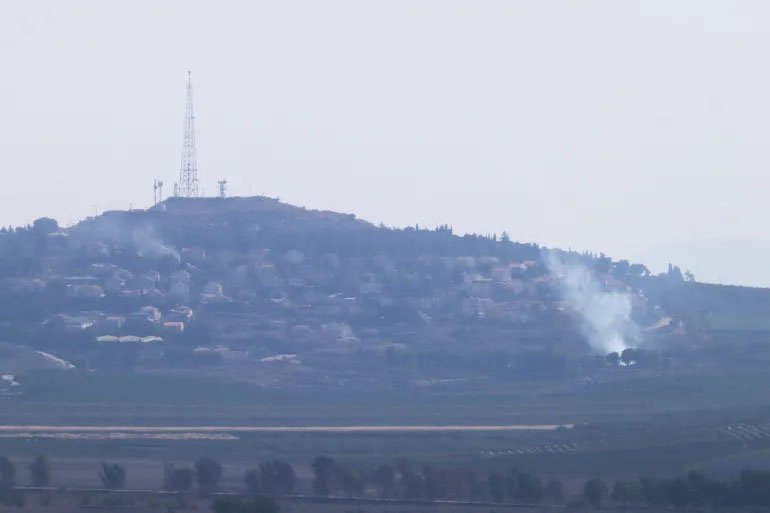In the early hours of today, the Israeli Army reported the launch of 50 rockets from Lebanon, following claims by Hezbollah of strikes on Israeli artillery positions in Dishon and Dalton. The situation has escalated, leading to multiple rocket strikes on cities such as Haifa and Safed, accompanied by air raid sirens in northern Israel.
Details of the Attack
The Israeli military stated that its air defense systems detected 50 rocket launches from Lebanon during the night. While some rockets were intercepted, others landed in Safed and its vicinity. Fortunately, the army reported no casualties from these impacts. However, Israeli public broadcasting indicated that two people sustained injuries when five rockets fell in Safed, damaging residential property.
In a related development, the Civil Defense in southern Lebanon reported one fatality and 30 injuries due to an Israeli airstrike on the town of Qana. This casualty figure is preliminary, as emergency teams continue to assist those affected.
Israeli Airstrikes and Ground Fighting
In response to the rocket attacks, Israeli fighter jets conducted airstrikes in Baalbek and its surroundings in eastern Lebanon. One targeted strike hit near a hospital, causing significant damage and rendering the facility inoperable.
As hostilities escalate, ground combat between the Israeli Army and Hezbollah intensifies, particularly near the border towns of Ramieh. Hezbollah has claimed responsibility for destroying Israeli tanks and bulldozers, even releasing footage of their Qader 2 missiles targeting areas near Tel Aviv two days prior.
The Israeli Army has bolstered its presence at combat fronts, sending reinforcements, including the fifth military division, and launching attacks on regions in southern Lebanon, the Bekaa Valley, and Mount Lebanon.
Official Statements and Ongoing Tensions
Israeli Defense Minister Yoav Gallant remarked that Israel is making tangible progress in creating conditions for residents of the north to return to their homes, though he acknowledged that this process would take time.
Amid this escalating conflict, Hezbollah’s Deputy Secretary-General Naeem Qassem declared that the group had initiated a new strategy titled “Inflicting Pain on the Enemy.” He affirmed that Hezbollah’s rockets would continue targeting Tel Aviv, Haifa, and beyond. Qassem emphasized that Lebanon cannot be separated from Palestine and that the region is implicated in the broader Israeli expansionist agenda.
Conclusion
The situation remains tense as both sides prepare for further escalations. The recent exchanges of fire highlight the fragility of peace in the region and the potential for a broader conflict involving multiple stakeholders.



